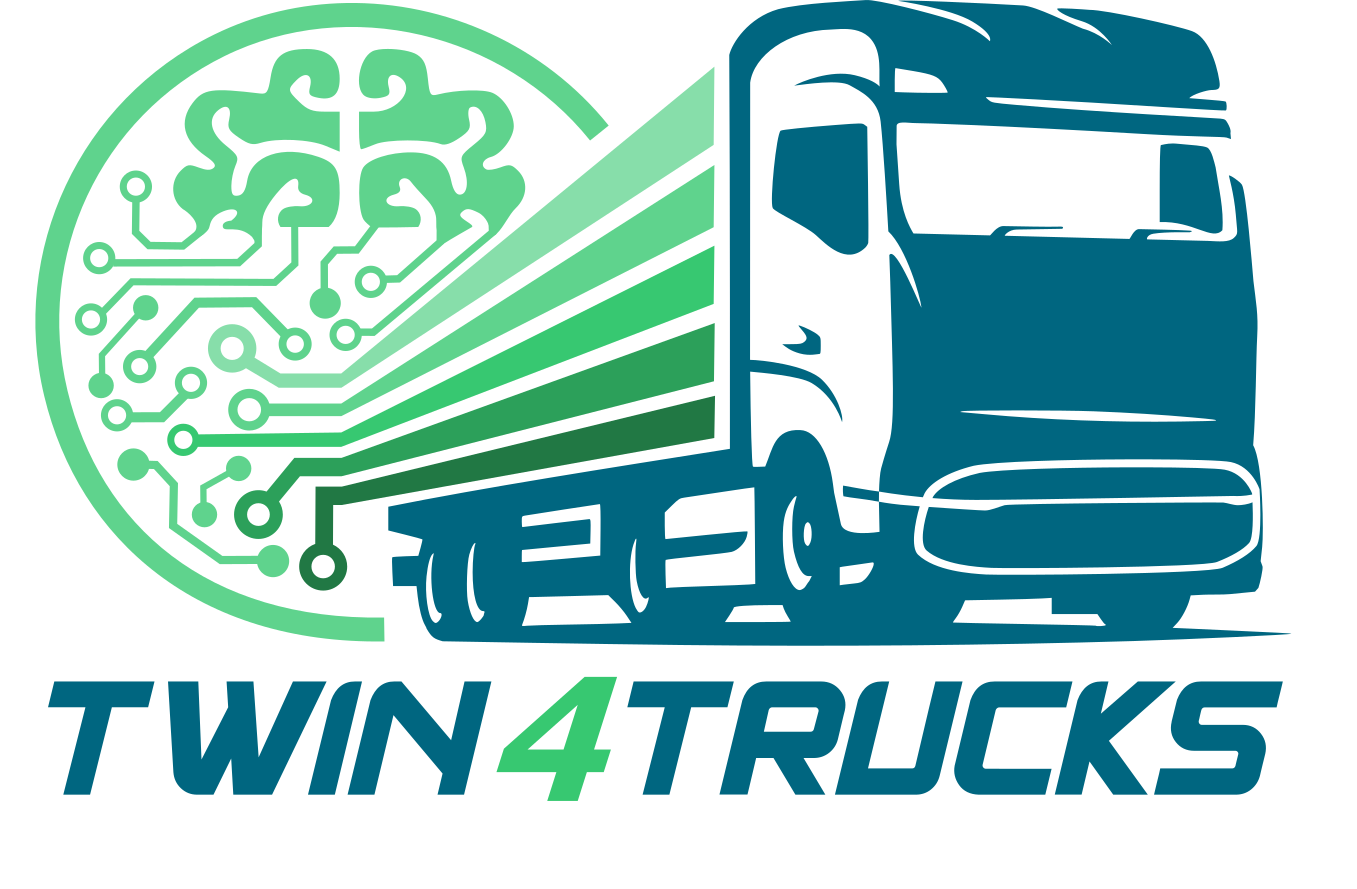Wissenschaft & Publikationen
TWIN4TRUCKS steht für den Transfer wissenschaftlicher Forschungsergebnisse in die industrielle Praxis. Die folgenden Publikationen sind rund um das Projekt TWIN4TRUCKS entstanden.
2025
Monitoring Machine Learning Models: Focusing on Drift Detection in Manufacturing Quality Control Systems
Ali Nazeri, Aakarsh Goel, Achim Wagner, Martin Ruskowski
2025
Efficient Manufacturing: Digital Thread with SmartFusion
Nastaran Moarefvand, Simon Bergweiler, Achim Wagner, Martin Ruskowski
30.07.2025
Comparative Analysis of Synthetic Data Generation
for Object Detection: CAD Models vs. 3D Scans of Industrial Items and Hybrid Approaches
Abdullah Farrukh, Tatjana Legler, Achim Wagner, Martin Ruskowski
15.07.2025
Context-Aware Worker Assistance System in Augmented Reality using Semantically Zoomable Digital Twin
Snehal Walunj, Parsha Pahlevannejad, Ali Karnoub, Christiane Plociennik, Martin Ruskwoski
24.06.2025
Enabling non-smart assets using peripheral digital twins
Alexandra Ritter, Manuel Reif, Pascal Rübel, Benjamin Blumhofer, Simon Jungbluth, Martin Ruskowski
In contrast, there is data enrichment of the information models of operating resources that have minimal or no sensor technology. The need for a cost-efficient and robust design is often an argument against increasing the number of sensors available on such resources, as they are found in large numbers within companies, e. g. rudimentary tools, logistic carriers or pallets. In a variety of scenarios, it is advantageous to possess a more extensive set of information regarding these non-smart assets. When these assets are utilized in a production process and significantly influence the outcome, it is crucial to acquire a comprehensive knowledge of them and ensuring uninterrupted data integration.
This paper introduces a concept for generating information about non-smart assets using peripheral assets and their information models. The approach is illustrated through the example of asset tracking for non-smart work piece carriers and their transported products. An information model will be developed for the work piece carriers, which will be enriched with data from the information models of the peripheral devices and the carried products. The information model and the approach for data enrichment are based on asset administration shell.
16.06.2025
A Multi-Camera Vision-Based Approach for Fine-Grained Assembly Quality Control
Shashank Mishra, Ali Nazeri, Achim Wagner, Martin Ruskowski, Didier Stricker, Jason Raphael Rambach
11.06.2025
ToF-360 – A Panoramic Time-of-flight RGB-D Dataset for Single Capture Indoor Semantic 3D Reconstruction
Hideaki Kanayama, Mahdi Chamseddine, Suresh Guttikonda, So Okumura, Soichiro Yokota, Didier Stricker, Jason Raphael Rambach
28.04.2025
Evaluating and Integrating Positioning Technologies: A Framework for Industrial Applications
Dennis Salzmann, Florian Herrmann, Christoph Fischer, Hans Dieter Schotten
29.11.2024
Adapting to Changes: A Novel Framework for Continual Machine Learning in Industrial Applications
Jibinraj Antony, Dorotea Jalušić, Simon Bergweiler, Ákos Hajnal, Veronika ´labravec, Márk Emődi, Dejan Strbad, Tatjana Legler, Attila Csaba Marosi
22.11.2024
Enhancing flexibility in intralogistics 4.0 by using Services, Capabilities
Benjamin Blumhofer, Philipp Richard, Tatjana Legler, Martin Ruskowski
27.06.2024
Model Predictive Control Based Reference Generation for Optimal Proportional Integral Derivative Control
Fatos Gashi, Khalil Abuibaid, Martin Ruskowski, Achim Wagner
17.05.2024
Resolving Symmetry Ambiguity in Correspondence-based Methods for Instance-level Object Pose Estimation
Yongliang Lin, Yongzhi Su, Sandeep Prudhvi Krishna Inuganti, Yan Di, Naeem Ajiforoushan, Hanqing Yang, Yu Zhang, Jason Raphael Rambach
11.08.2023
U-RED: Unsupervised 3D Shape Retrieval and Deformation for Partial Point Clouds
Yan Di, Chenyangguang Zhang, Ruida Zhang, Fabian Manhardt, Yongzhi Su, Jason Rambach, Didier Stricker, Xiangyang Ji, Federico Tombari
In this paper, we propose U-RED, an Unsupervised shape REtrieval and Deformation pipeline that takes an arbitrary object observation as input, typically captured by RGB images or scans, and jointly retrieves and deforms the geometrically similar CAD models from a pre-established database to tightly match the target. Considering existing methods typically fail to handle noisy partial observations, U-RED is designed to address this issue from two aspects. First, since one partial shape may correspond to multiple potential full shapes, the retrieval method must allow such an ambiguous one-to-many relationship. Thereby U-RED learns to project all possible full shapes of a partial target onto the surface of a unit sphere. Then during inference, each sampling on the sphere will yield a feasible retrieval. Second, since real-world partial observations usually contain noticeable noise, a reliable learned metric that measures the similarity between shapes is necessary for stable retrieval. In U-RED, we design a novel point-wise residual-guided metric that allows noise-robust comparison. Extensive experiments on the synthetic datasets PartNet, ComplementMe and the real-world dataset Scan2CAD demonstrate that U-RED surpasses existing state-of-the-art approaches by 47.3%, 16.7% and 31.6% respectively under Chamfer Distance.
01.08.2023
Skill-basierte Intralogistik: Transport von Produkten an Produktionsmodule durch mobile Roboter
Benjamin Blumhofer, Alexandra Ritter, Jesko Hermann, Martin Ruskowski
There is a trend towards developing individualized solutions in the context of product exchange between production modules and autonomous mobile robots (AMR). These solutions are typically implemented via a central controller, utilizing pre-programmed processes and a fixed physical positioning of the AMR. Unfortunately, such solutions can be expensive and difficult to transfer to other implementations. Skill-based production offers a promising alternative, enabling a transport that is vendorindependent and resilient, by utilizing horizontal communication.
Published in: atp magazin (08/2023)
Wir freuen uns auf den Austausch! Bei Fragen oder Anmerkungen zu unseren Publikationen können Sie uns jederzeit kontaktieren.
